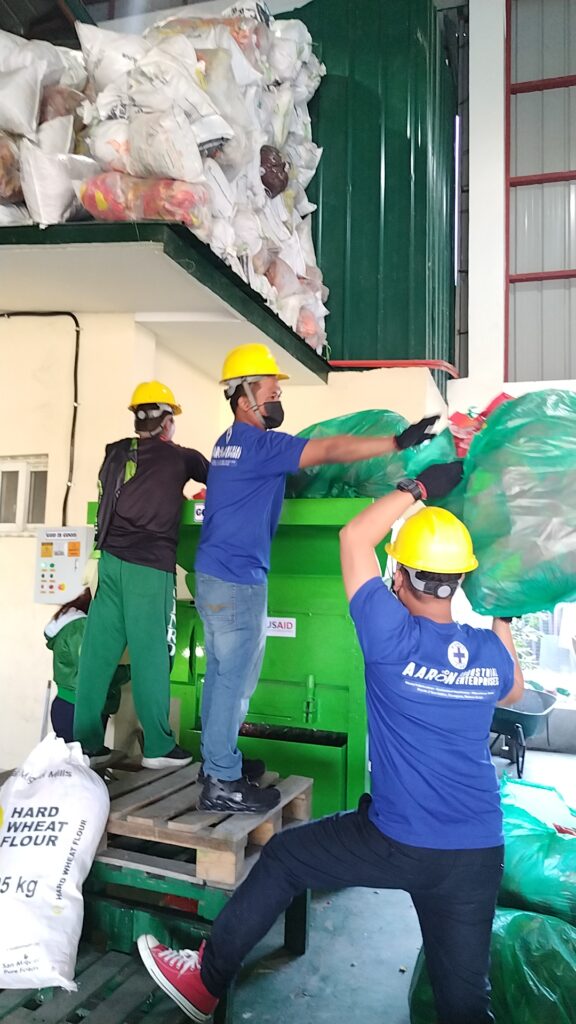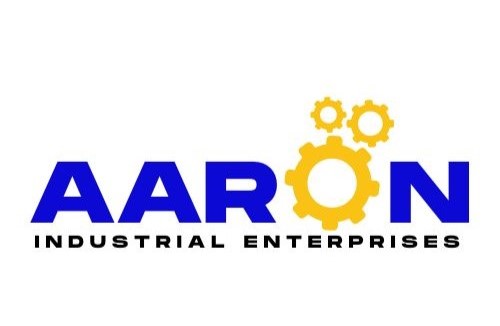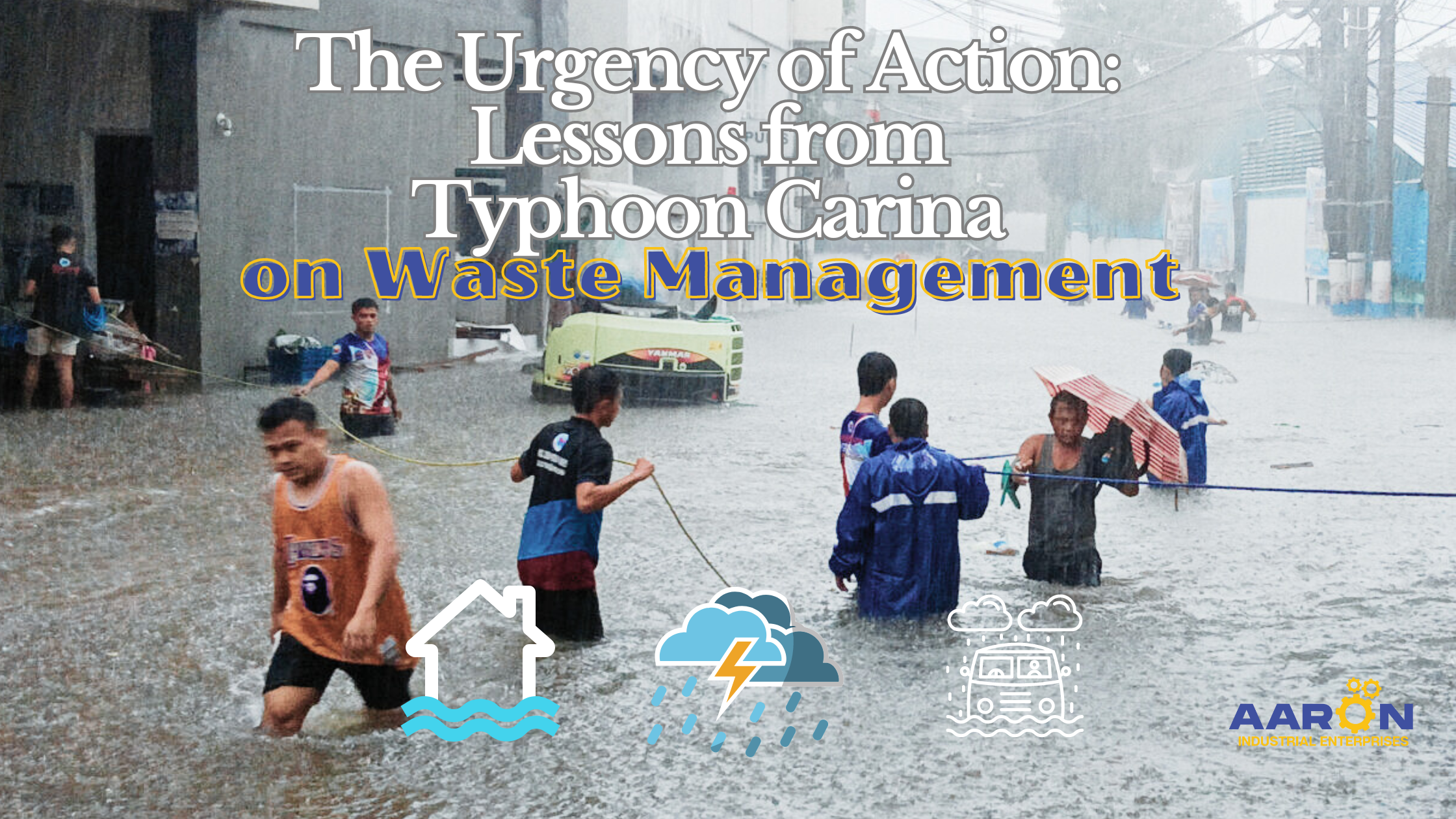The Urgency of Action: Lessons from Typhoon Carina on Waste Management
Introduction: Typhoon Carina’s recent impact on the Philippines has highlighted the critical importance of efficient and effective waste management in disaster recovery.
As a waste management machinery manufacturing company, we have gained invaluable insights from this event. These lessons will not only shape the future of our products but also enhance our ability to support communities during and after natural disasters.
The Impact of Typhoon Carina on the Philippines:
1. Widespread Destruction and Debris: Typhoon Carina has left a trail of destruction across the Philippines, causing significant damage to infrastructure, homes, and the environment. The aftermath has resulted in massive amounts of debris, including fallen trees, damaged buildings, and household waste, which pose a serious challenge for cleanup efforts.
2. Health and Environmental Risks: The accumulation of waste and debris in the wake of Typhoon Carina has created severe health and environmental risks. Stagnant water, rotting organic matter, and hazardous materials increase the potential for disease outbreaks and environmental contamination. Proper waste management is crucial to mitigating these risks and ensuring public health and safety.
3. Disruption of Essential Services: The overwhelming amount of debris has obstructed roads and access to essential services, delaying emergency response efforts and prolonging the recovery process. Efficient waste management machinery is vital to clearing pathways and restoring access to critical services such as healthcare, food, and water.

Jonathan Cellona, ABS-CBN News
The Consequences of Inaction:
1. Prolonged Recovery and Increased Costs: Failing to act quickly on waste management will result in a prolonged recovery process and increased costs. The longer debris and waste remain unaddressed, the more difficult and expensive it becomes to manage. Prompt and efficient waste management is essential to reducing recovery time and minimizing costs.
2. Escalating Health Hazards: Delayed waste management exacerbates health hazards, leading to increased risks of disease outbreaks, respiratory issues, and injuries. Rapid deployment of waste management machinery can significantly reduce these risks by ensuring timely removal and proper disposal of hazardous waste.
3. Environmental Degradation: If waste and debris are not promptly managed, environmental degradation will continue to worsen. Uncontrolled waste can contaminate water sources, harm wildlife, and degrade ecosystems. Sustainable waste management practices are crucial to preserving the environment and promoting long-term ecological health.
4. Strain on Community Resources: Inaction in waste management places a tremendous strain on community resources, diverting attention and funds away from other critical recovery efforts. Efficient waste management machinery can alleviate this strain by streamlining cleanup processes and allowing communities to focus on rebuilding and rehabilitation. As a waste management machinery manufacturing company, we are committed to providing solutions that address the immediate and long-term challenges posed by natural disasters like Typhoon Carina. Here’s how we’re making a difference:
Our Commitment to Action:
As a waste management machinery manufacturing company, we are committed to providing solutions that address the immediate and long-term challenges posed by natural disasters like Typhoon Carina. Here’s how we’re making a difference:
1. Rapid Deployment and Efficient Operation: Our machinery is designed for rapid deployment and efficient operation, ensuring that communities can quickly and effectively manage waste and debris in the aftermath of a disaster.
2. Durability and Reliability: We prioritize quality and durability in our manufacturing processes, producing machinery that can withstand extreme conditions and continuous use. This ensures reliable performance when it is needed most.

3. Local Manufacturing and Expertise: Our local manufacturing base and skilled Philippine machinists allow us to respond swiftly to the unique needs of disaster-affected areas. Onshore production means faster delivery, better customer service, and machinery tailored to local conditions.
4. Sustainable Solutions: We are dedicated to sustainability, designing machinery that supports recycling and responsible waste disposal. Our equipment not only handles immediate cleanup needs but also promotes long-term environmental health.
5. Innovation and Preparedness: Continuous innovation is at the core of our approach. We invest in research and development to stay ahead of evolving challenges and ensure our machinery is always ready to meet the demands of disaster recovery.
Conclusion:
Typhoon Carina has provided profound insights into the essential role of waste management machinery in disaster recovery. From the necessity of immediate and efficient response to the imperative of durability, local expertise, continuous innovation, sustainability, and preparedness, these lessons will guide us in enhancing our products and services. Our goal is to support communities in building resilience and recovering more effectively from natural disasters.
“Our goal is to support communities in building resilience and recovering more effectively from natural disasters.”
Call to Action:
To learn more about how our waste management machinery can help your community prepare for and recover from natural disasters, contact us today. Together, we can build a safer, cleaner, and more resilient future.

